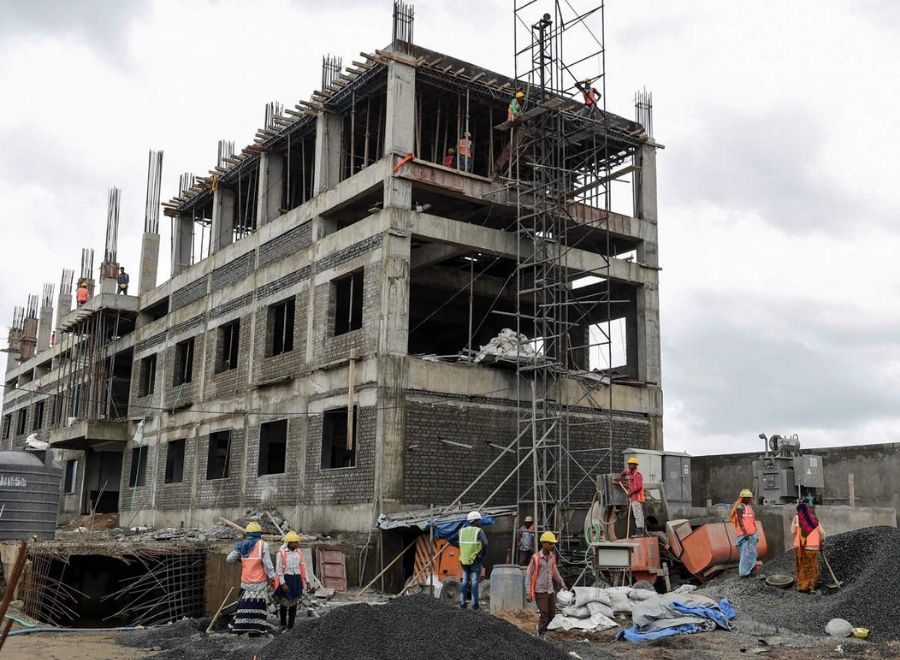
Govt's affordable housing post COVID may be too pricey for migrants

The mass exodus of migrants amid the COVID-19 pandemic has brought to the fore the issue of lack of housing facilities among the low-income group. Activists say many migrants had decided to return to their hometowns as they had no place to stay.
In this backdrop, the World Bank, the Centre and the Tamil Nadu government came together to sign an agreement to provide low-income groups with affordable housing. The pact includes two projects: First Tamil Nadu Housing Sector Strengthening Programme worth $200 million and Tamil Nadu Housing and Habitat Development worth $50 million.
“It (the agreement) supports the government’s ongoing efforts to increase the availability of affordable housing by gradually shifting the role of the state from being the main provider to an enabler. It will also aim to unlock regulatory barriers and incentivise private sector participation in affordable housing for low-income families” the Union Ministry of Finance said in a release.
Besides low-income groups, the state government is planning to provide ‘Affordable Rental Housing Complex’ (ARHC) to migrants under the Pradhan Mantri Awas Yojana (Urban) with a budget of ₹600 crore, reported The New Indian Express.
The state had nearly four lakh migrants, who were largely employed in construction, manufacturing and hospitality sectors. Most of them were from Bihar, Jharkhand, Odisha, West Bengal, Uttar Pradesh and Assam. It is expected that the state government’s initiatives will benefit at least three lakh migrants.
“Since remaining indoors is one of the major safety measures amid the pandemic, many workers started realising the importance of having a house. But, only when the government comes out with rules (in this regard), we can know if migrants could afford to rent houses,” S Sridharan, the chairman of CREDAI, Tamil Nadu, told The Federal.
Ultimately, the cost of the land decides everything, he said. “If the government provides the land and asks private players to construct the houses or if it is going to be a public-private partnership, we can come up with competitive rates. Only if the (construction) cost is cheap, the rents will be cheap,” said Sridharan.
Related News: Homebuyers in decade-long ‘vanvas’ as Jaypee case turns a messy tangle
Vanessa Peter, policy researcher, Information and Resource Centre for the Deprived Urban Communities, said even the term ‘affordable housing’ was being wrongly interpreted. “It is just a component of a concept called adequate housing, which not only deals with the size, but also takes other cultural aspects into consideration,” she said.
According to the United Nations’ General Comment 4, the right to housing should not be interpreted in a narrow or restrictive sense which equates it with. For example, the shelter provided by merely having a roof over one’s head or views shelter exclusively as a commodity. Instead, it should be seen as the right to live somewhere in security, peace and dignity.
“Since the governments are providing houses at cheap rates, it doesn’t mean that they can be substandard. We should not focus only on the economy, but also the location, size and other living conditions,” added Peter.
Housing projects must not only be centred on the migrants who come with their families, but also single male and female migrants, said Bernard D’ Sami, senior fellow, Loyola Institute of Social Science Training and Research.
“The state can follow the Kerala model. There they have built hostels for single male and female migrants. Here (in Tamil Nadu), we have night shelters, but they are not exclusively for migrants. We need such night shelters with community kitchens, since the working times of migrants are different from others” he said.


